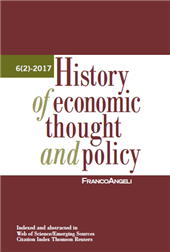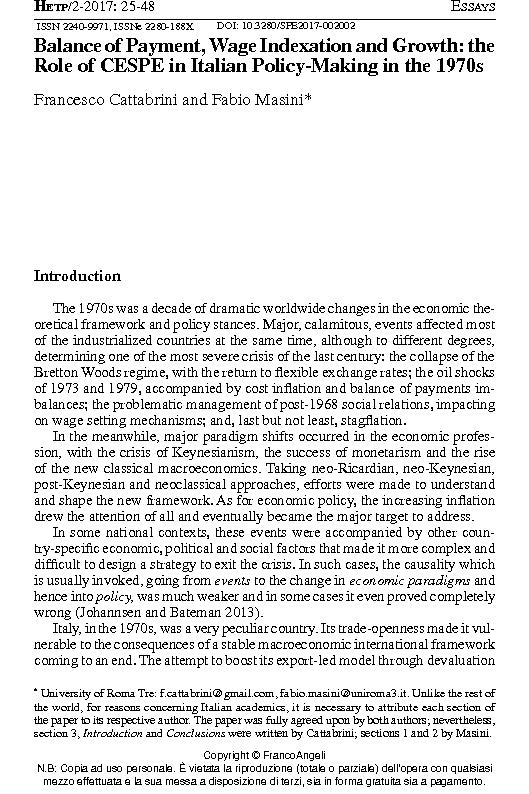Balance of Payment, Wage Indexation and Growth : the Role of CESPE in Italian Policy-Making in the 1970s
25-48 p.
Italian policy-making changed dramatically during the Seventies. Exogenous events (like the end of the Bretton Woods system and the oil shocks) and endogenous transformations of the major economic (wage indexation, planning system, instrument of governmental intervention in industries, tax system, relationship between monetary authority and Treasury) and political institutions (workers statute, public health insurance, role of regions, school system) deeply changed the Italian society. Such changes were accompanied and often guided by experts, who exerted a major influence on policymaking. This influence mainly operated through some influential think tanks, which set the table for fundamental public policies. Among them, one of the most relevant was CESPE, the research centre of the Italian Communist Party, to which most leading Italian economists of the time gave their contribution, and that organized several workshops and published research and policy papers. The aim of the paper is to highlight the contrib
ution CESPE gave to the transformation of Italian policy-making in the Seventies. [Publishers' text].
Fa parte di
History of Economic Thought and Policy : 2, 2017-
Articoli dello stesso fascicolo (disponibili singolarmente)
-
Informazioni
Codice DOI: 10.3280/SPE2017-002002
ISSN: 2280-188X
PAROLE CHIAVE
- Italian policy-making, think-tanks, wage indexation, balance of payment, external contraint



